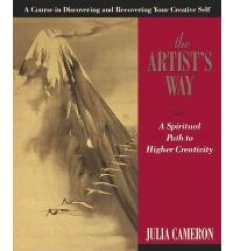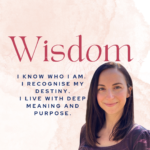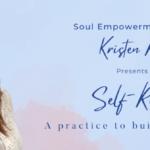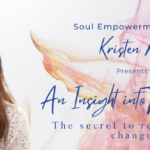Be your own Therapist and Write
One of my favourite parts of a kinesiology session is when I get to help my clients find strategies that will help them continue their healing journey.
I often give my clients the task of writing as homework.
Writing can help them to further access information from the subconscious mind and enhance the therapy experience.
Write therapy has produced some interesting results for many of my clients who use it as an ongoing form of inner work between sessions.
On an energetic level write therapy works to activate the Throat chakra which is our energetic centre of expression.
Write therapy can be used as a complementary aid to traditional therapies such as counselling and kinesiology to:
- clarify thoughts
- gain insight
- uncover hidden emotions
- find solutions
- enhance creativity
- purge unwanted recurring thoughts
- tap into your intuition
- be mindful
Types of Write Therapy
There are many different ways you can use writing to gain insight into your problems and/or help you create a happy, healthier life.
Journalling
Did you keep a diary growing up?
Journalling is the most common form of writing therapy and it’s one we learn about in childhood when we are given our first diary. A journal can be a powerful tool for empowerment, growth, and life balance. By writing down the events of the day and focusing on those which have had the most emotional charge, journalling can help uncover patterns of behaviour and attitudes we may wish to adjust. It can also give us the space to find answers to our questions.
It’s a daily routine that could change your life, and all it takes is a pen and notebook.
Morning Pages / Stream of consciousness writing
Morning Pages (from Julia Cameron’s The Artists Way) are three pages of stream of consciousness, long-hand writing, done first thing in the morning. Morning pages can be about anything and everything that crosses your mind, and are for your personal use, not to be shared. Morning Pages are said to provoke, clarify, comfort, and help you prioritise what’s important before moving on with your day.
Automatic Writing / Psychography
Automatic writing or psychography is an intuitional form of writing allowing a person to produce written words without consciously ‘writing’ them. The words are said to arise from a subconscious or spiritual source. People sometimes find themselves participating in this kind of writing after meditating on a subject or once they have begun the process of stream of conciousness writing (see morning pages) they will progress into automatic writing. This type of writing can produce great insight as it comes from a deep subconscious space.
Narrative Writing
Narrative writing is a powerful story-telling technique where the writer tells a story in the way that they would like it to play out. The writer may choose to make themselves a part of the story. They may also choose to re-write a real-life scenario to change the way the story evolved. This type of writing can be helpful when dealing with memories of past events and situations. because memory is malleable, story-telling can shift the energy of the memory in a more favourable way for the writer. If you find that you constantly tell yourself a negative story about a particular event or concern, try writing the story with a positive outcome, the more believable your story is, the better.
Letter-writing
This is where we write a letter to someone regarding our thoughts and feeling about the issue of concern. This can either be sent to the person or can just used as therapeutic technique to help us clarify what it is we would like to express to that particular person. This may help us express ourselves more clearly in future dealings.
Brainstorming or mind-mapping
Simple and quick, my favourite kind of writing therapy. This is where you simply list your ideas in word form as they come to you. You can build on this kind of writing by working with mind-maps which are good for gathering a lot of information in a short period of time.
Writing complements kinesiology.
Kinesiology helps us to identify the causes of stress by accessing the subconscious mind to gather information. By working with any of the above forms of writing therapy before or after a session you can become clearer about the issue and how you can express yourself moving forward.
Suggested treatment plan.
When treating an issue with the help of kinesiology I recommend:
- An initial 90 minute kinesiology consultation followed by 3 – 5 standard consultations 1 -2 weeks apart.
- Further follow-up standard consultations should be spaced between 2 -4 weeks apart or booked as needed.
Recommended Reading

The Artists Way by Julia Cameron Purchase at Book Depository or on iBooks
Kristen Ross founded Affinity Wellness in 2007 and since has helped hundreds of clients to unlock their Inner Guidance, Unleash their potential and create lives they love.
With a history in the management of artists. Kristen had the opportunity to help guide the careers of many professional actors and artists, helping others thrive personally and professionally by connecting to their intuition and inner compass, this led her to study healing modalities such as kinesiology and counselling to enhance her work as a soul empowerment guide.
Kristen combines a striking combination of energy healing (kinesiology), counselling, coaching, dreamwork, meditation and yogic medicine practices to tap into the many facets of the self, mind, body and soul and release the layers that block her clients from accessing their intuition and self-love.
She believes that your life is your spiritual practice and that every decision you make is a part of your journey towards peace, power and enlightenment.
Everything you create and achieve comes from your ability to love and accept yourself and to do that you must engage in inner work.
Kristen currently runs a private online practice servicing individuals across Australia, New Zealand and the UK based in Melbourne, Australia.












